Publications
Here you can find my published work.
2025
-
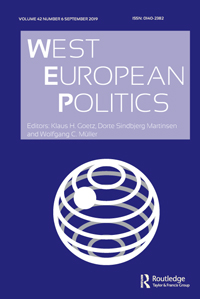 Opposition parties seek more conflict with the government when losing electoral supportElias Koch2025West European Politics (forthcoming)
Opposition parties seek more conflict with the government when losing electoral supportElias Koch2025West European Politics (forthcoming)Opposition parties benefit electorally from engaging in conflict with the government. However, it remains unclear whether they adjust their rhetoric towards the executive in response to changes in their public support. I argue that opposition parties seek more conflict with the government when losing in election polls. To test my hypothesis, I derived an original dataset comprising all major German parties’ interjections during debates in the 16 German state parliaments (1998–2019). Based on 664,011 interruptions during 250,555 government speeches, I show that opposition parties increasingly seek conflict with the executive the worse they perform in the polls. This relationship between opposition parties’ rhetoric towards the government and their approval is particularly strong when they are projected to lose compared to their previous election result. These findings contribute to our understanding of how public opinion in general, and election polls in particular, affect the central line of conflict in representative democracies.
@article{koch2025, author = {Koch, Elias}, journaltitle = {West European Politics}, shortjournal = {WEP}, date-modified = {2024-08-09 11:10:35 +0200}, title = {Opposition parties seek more conflict with the government when losing electoral support}, type = {article}, doi = {10.1080/01402382.2025.2524944}, year = {2025}, volume = {}, pages = {}, note = {<i>West European Politics</I> (forthcoming)} } -
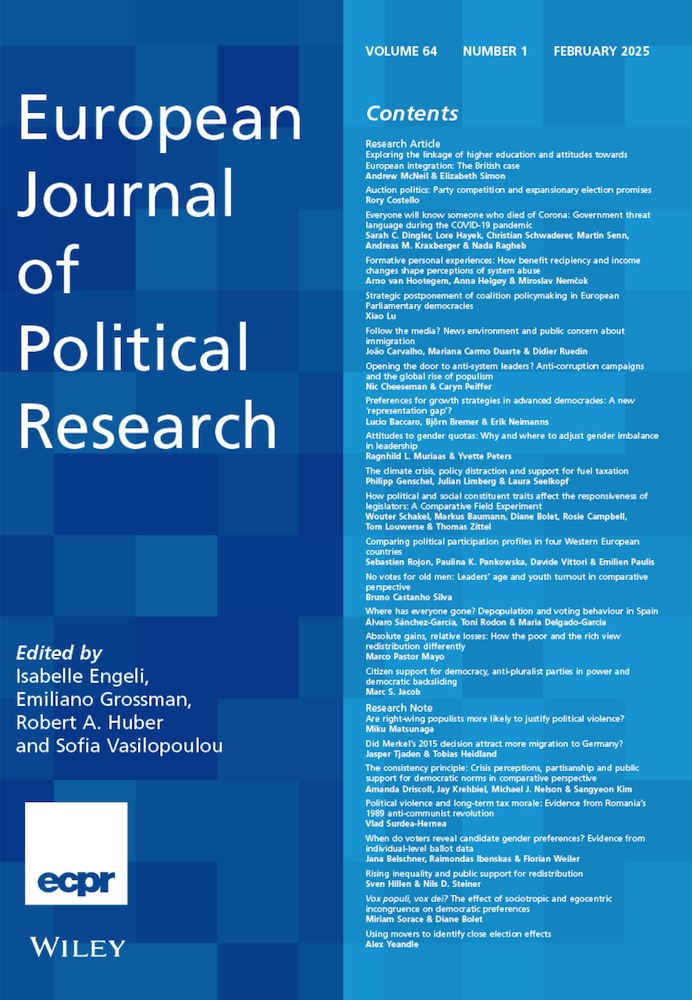 The Politics of Seeking and Avoiding Discourse in ParliamentElias Koch, and Andreas Kuepfer2025European Journal of Political Research (EJPR)
The Politics of Seeking and Avoiding Discourse in ParliamentElias Koch, and Andreas Kuepfer2025European Journal of Political Research (EJPR)When do politicians debate each other in parliament, and when do they prefer to avoid discourse? While existing research has shown MPs to unilaterally leverage the dialogical nature of legislative debates to their advantage, the circumstances facilitating actual discursive interaction have so far received less attention. We introduce a new framework to study the emergence of discourse in political debates. Applying this framework, we expect ideological differences and government-opposition dynamics to shape politicians’ choices about seeking or avoiding discourse. To test these hypotheses, we draw on an original dataset of all 14,595 attempted and successful interventions (Zwischenfragen) — extraordinary, voluntary discursive exchanges between speakers and MPs in the audience — in the German Bundestag (1990-2020), extracted using an annotation pipeline developed specifically for this study. We find that MPs separated by diverging preferences seek discourse with one another more often than their ideologically aligned counterparts. At the same time, these exact attempts do less frequently result in discursive interactions. When considering government-opposition dynamics in this process, we observe very similar patterns: Attempts to initiate discourse are particularly common among opposition MPs facing government speakers, and we find tentative evidence suggesting that government actors are most likely to avoid these invitations to discursive interaction. Our findings have important implications for our understanding of elite behaviour in public environments.
@article{kochkupfer2025, title = {The Politics of Seeking and Avoiding Discourse in Parliament}, journaltitle = {European Journal of Political Research}, shortjournal = {EJPR}, author = {Koch, Elias and Kuepfer, Andreas}, data = {https://doi.org/10.7910/DVN/8K9NAN}, doi = {10.1111/1475-6765.70013}, date = {2025-02-06}, type = {article}, year = {2025}, volume = {}, pages = {}, note = {<i>European Journal of Political Research</I> (EJPR)} } -
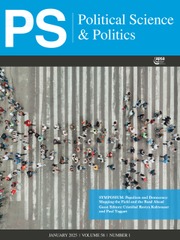 The Zweitstimme Forecast for the German Federal Election 2025: Coalition Majorities and Vacant Districts2025PS: Political Science & Politics (PS, forthcoming)
The Zweitstimme Forecast for the German Federal Election 2025: Coalition Majorities and Vacant Districts2025PS: Political Science & Politics (PS, forthcoming)In this article, we provide a forecast for the German Federal Election of 2025. We use our previous forecasting models to provide national-level forecasts for party vote shares and district-level outcomes for candidate votes. We show that the combination of both permits us to calculate both forecasts for coalition majorities in parliament, and “vacant districts” under the recent electoral reforms.
@article{erfortstotzer_etal2025, title = {The Zweitstimme Forecast for the German Federal Election 2025: Coalition Majorities and Vacant Districts}, journaltitle = {PS: Political Science & Politics}, shortjournal = {PS}, author = {Erfort, Cornelius and Stoetzer, Lukas and Gschwend, Thomas and Koch, Elias and Munzert, Simon and Rajski, Hannah}, doi = {10.1017/S1049096525000150}, date = {2025-02-05}, type = {article}, year = {2025}, volume = {}, pages = {}, note = {<i>PS: Political Science & Politics (PS, forthcoming)</I>} }
2024
-
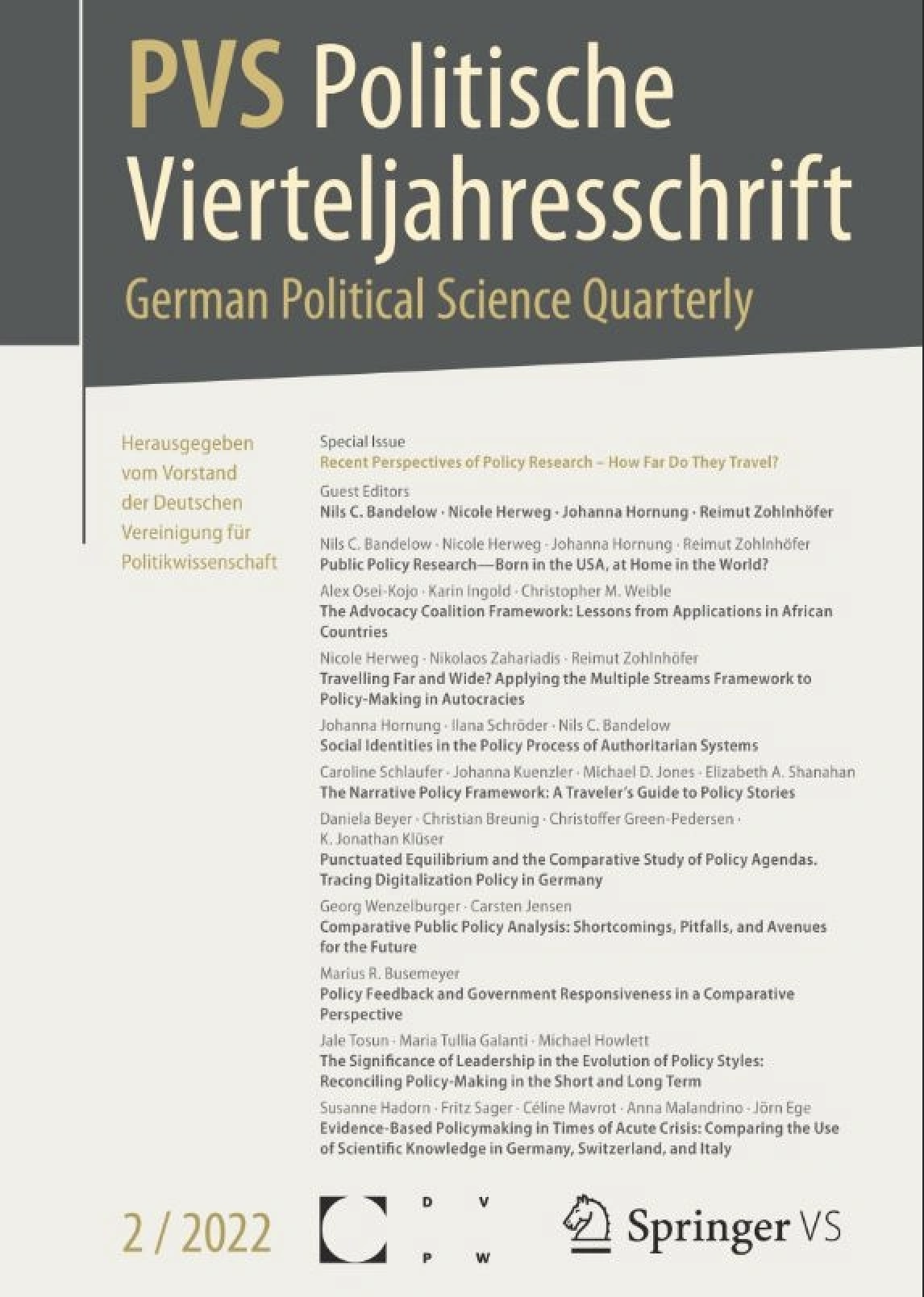 StatePol – A Database on the Members of German State Cabinets and Parliaments2024German Political Science Quarterly (PVS)
StatePol – A Database on the Members of German State Cabinets and Parliaments2024German Political Science Quarterly (PVS)This research note introduces StatePol, a new and comprehensive database of German state politicians in parliaments and governments. StatePol includes sociodemographic characteristics such as age, sex, and birthplace, as well as career data such as memberships and offices in parliamentary party groups, committees, parliamentary presidencies, and government cabinets for every parliamentary and cabinet member on the German state level. The added value of the database lies in the fact that it offers highly fine-grained data capturing day-by-day changes within legislative periods. As a result, StatePol contains a total of 22,379,186 daily observations of 6946 individual decision-makers in the German federal states, including information on their positions and mandates in legislative and executive realms. We illustrate potential applications of StatePol by exploring the descriptive representation of sex, age, and regional origin (eastern/western Germany) in the German states. We find that the proportion of women in the state parliaments has stagnated at around 30% since the early 2000s, with considerable differences between parties and their parliamentary groups. We also observe a steady increase in the average age of the members of parliament, particularly among those of the Greens and the Left. While politicians of East German origin dominate in the parliaments and governments of the East German states, they are less represented in West German state parliaments and governments. In contrast, decision-makers born in West Germany consistently make up a substantial proportion of all state cabinet members. The database is publicly available, allowing researchers to comprehensively examine various questions on representation in the German context. This research note is accompanied by a homepage allowing users to explore the full potential of StatePol and to download the data.
@article{koch_statepol_2024, title = {{StatePol} – A Database on the Members of German State Cabinets and Parliaments}, url = {https://link.springer.com/10.1007/s11615-024-00528-z}, doi = {10.1007/s11615-024-00528-z}, journaltitle = {Politische Vierteljahresschrift}, shortjournal = {Polit Vierteljahresschr}, author = {Koch, Elias and Kuhlen, Daniel and Mueller, Jochen and Stecker, Christian}, date = {2024-02-06}, type = {article}, data = {https://statepol.github.io/Database/}, year = {2024}, volume = {65}, pages = {759--783}, note = {<i>German Political Science Quarterly (PVS)</i>}, }
2023
-
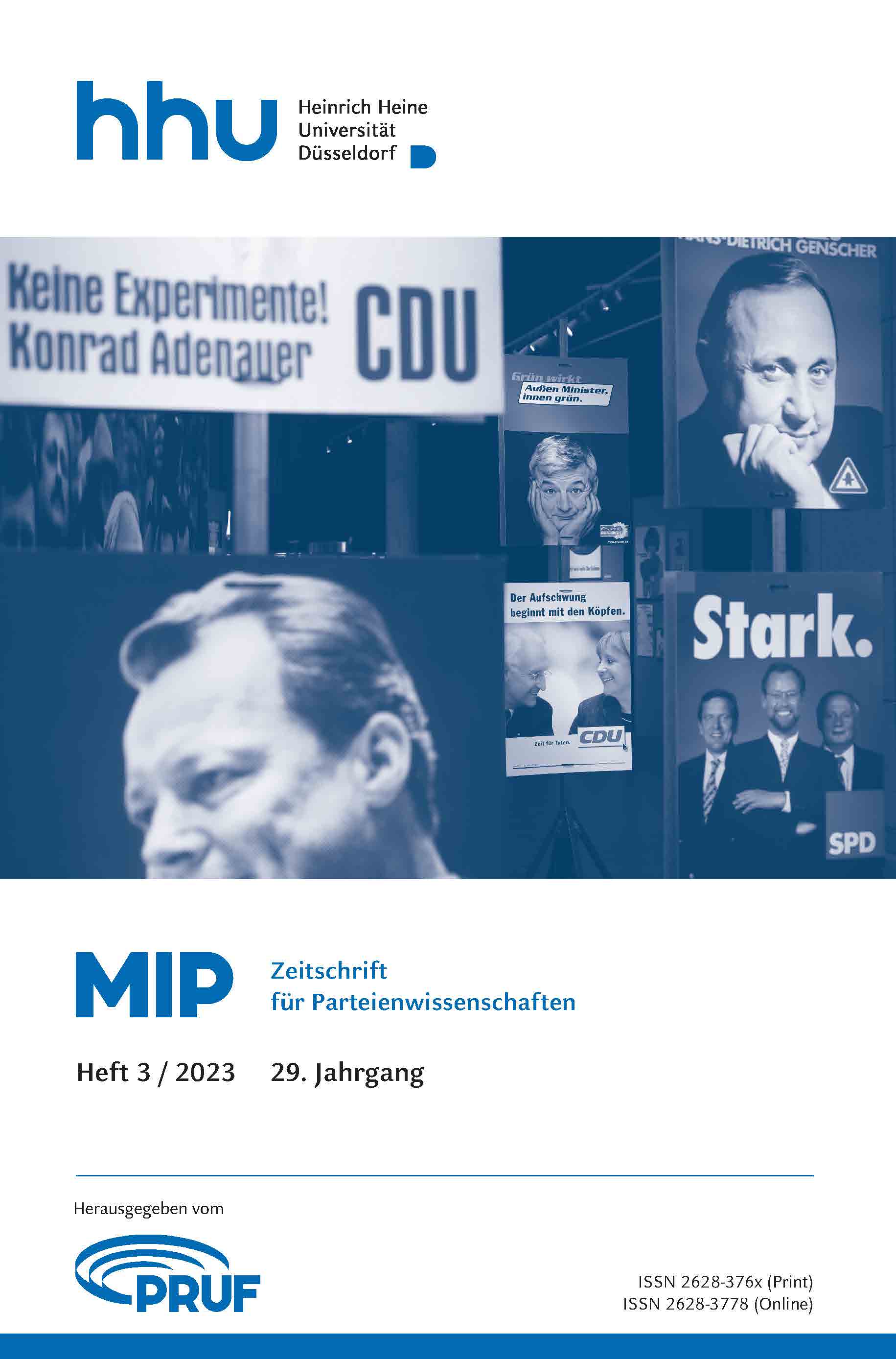 Wie weiter mit der Parteiorganisation der CDU nach Merkel? Eine Analyse der Debatten auf Regionalkonferenzen zum neuen Parteivorsitz.Benjamin Hoehne, and Elias Koch2023Zeitschrift für Parteienwissenschaften
Wie weiter mit der Parteiorganisation der CDU nach Merkel? Eine Analyse der Debatten auf Regionalkonferenzen zum neuen Parteivorsitz.Benjamin Hoehne, and Elias Koch2023Zeitschrift für ParteienwissenschaftenDer Beitrag untersucht die in der CDU diskutierten innerparteilichen Reformvorhaben sowie die entsprechenden Positionen der Kandidierenden um den Parteivorsitz auf den Regionalkonferenzen am Ende des Jahres 2018. Um die Nachfolge der langjährigen Parteivorsitzenden Angela Merkel bewarben sich Annegret Kramp-Karrenbauer, Friedrich Merz und Jens Spahn, die sich auf acht Regionalkonferenzen vorstellten. Auf Grundlage der eigens hierfür transkribierten, 201.615 Wörter umfassenden, Wortprotokolle der Regionalkonferenzen wird untersucht, welche innerparteilichen Reformvorhaben diskutiert wurden und wie sich die Kandidierenden zu ihnen positionierten. Die qualitative Analyse zeigt zum einen, dass Fragen zur innerparteilichen Demokratie, zur Rolle der Vereinigungen der CDU sowie zur Schaffung neuer Möglichkeiten der intensiveren Basisbeteiligung thematisiert wurden. Zum anderen wurden die deskriptive Repräsentation von Frauen und jüngeren Menschen in Ämtern und Mandaten debattiert – Fragestellungen, die bislang hauptsächlich in Deutschland bei Bündnisgrünen, Linken und SPD verortet wurden. Des Weiteren deuten die Ergebnisse darauf hin, dass die Positionierung der Kandidierenden auch eigennutzenorientierten Motiven folgte, die die eigene Kandidatur unterstützen. Dieser Beitrag liefert Einblicke in den diskursiven Prozess und die strategische Aufstellung der Kandidierenden bei der personellen Neubesetzung des CDU-Vorsitzes und bietet Ansatzpunkte für weiterführende Forschungsfragen im Rahmen der Leadership-Selection und Party-Change-Forschung.
@article{hohnecdu2023, title = {Wie weiter mit der Parteiorganisation der CDU nach Merkel? Eine Analyse der Debatten auf Regionalkonferenzen zum neuen Parteivorsitz.}, url = {https://doi.org/10.24338/mip-2023313-342}, doi = {10.24338/mip-2023313-342}, journaltitle = {Zeitschrift für Parteienwissenschaften}, note = {<i>Zeitschrift für Parteienwissenschaften</i>}, shortjournal = {MIP}, author = {Hoehne, Benjamin and Koch, Elias}, date = {2023-12-06}, year = {2023}, type = {article}, volume = {2023}, number = {3}, pages = {313--342}, }
2022
-
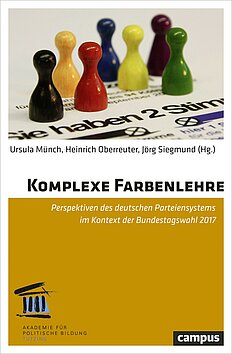 Erfolgreiches Scheitern: Bündnis 90/Die Grünen und die Bundestagswahl 2017Sebastian Bukow, and Elias Koch2022
Erfolgreiches Scheitern: Bündnis 90/Die Grünen und die Bundestagswahl 2017Sebastian Bukow, and Elias Koch2022